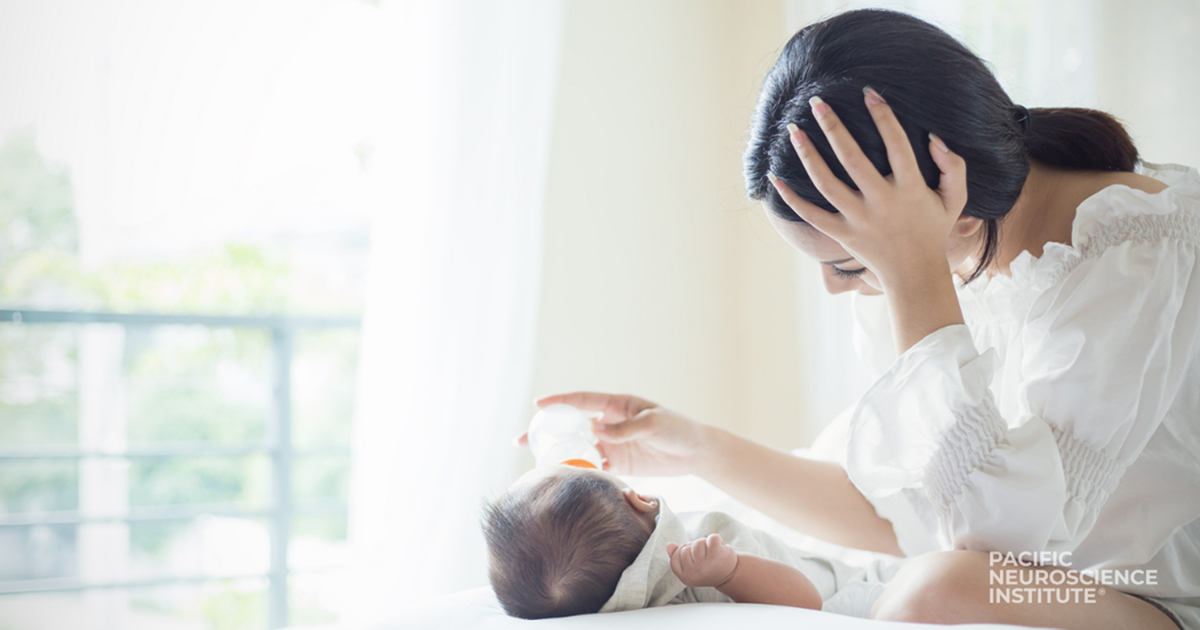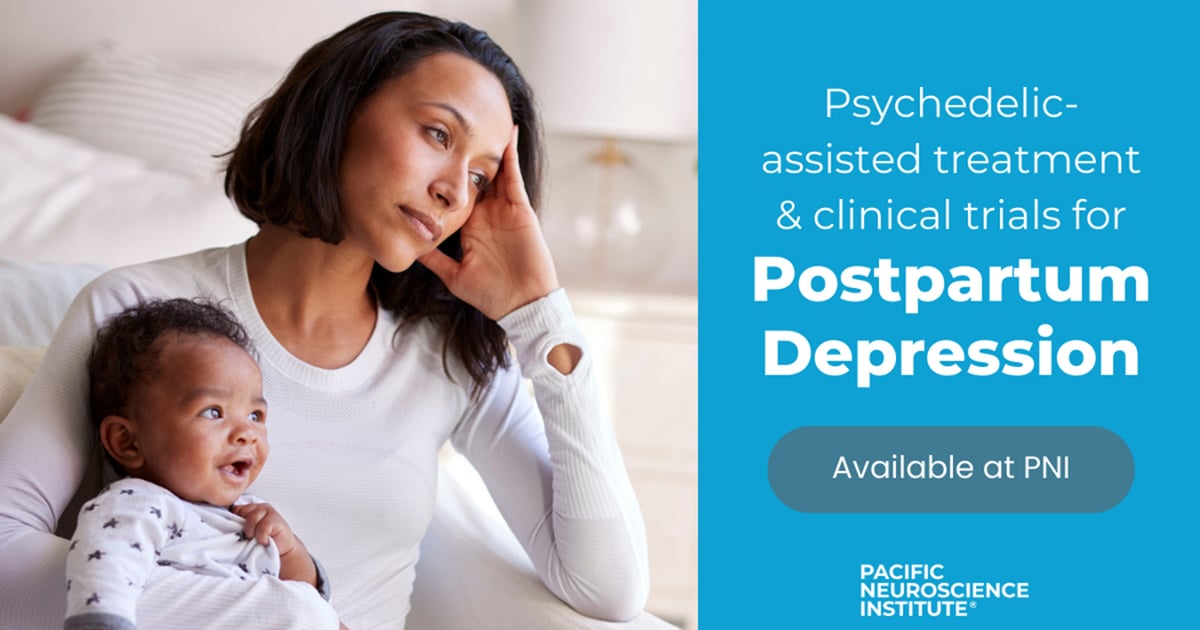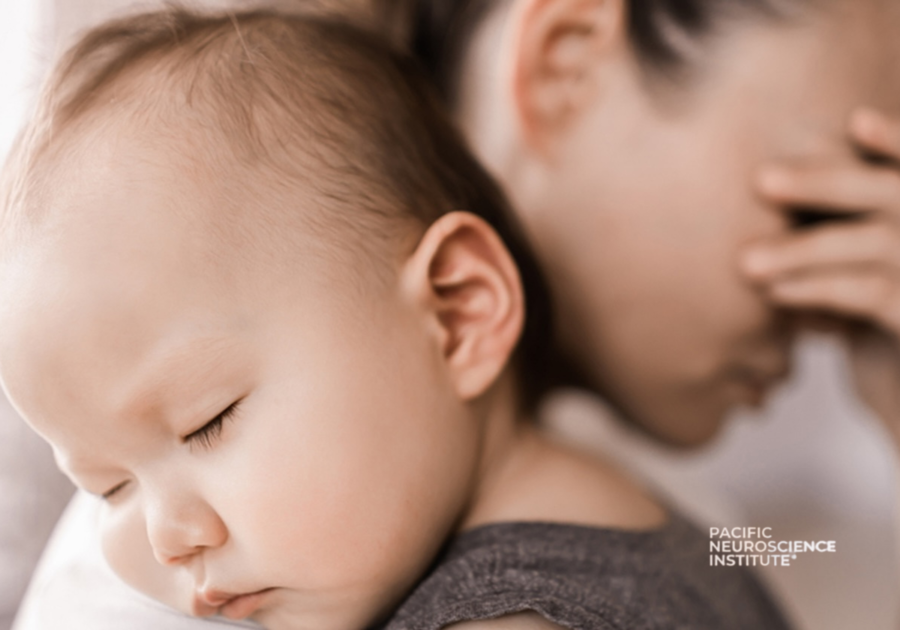Postpartum depression affects approximately 1 in 7 women, yet many suffer in silence. The good news is that help is available, and new treatments, including psychedelic-assisted therapy, are offering hope.
This article is sponsored by Pacific Neuroscience Institute.
What Is Postpartum Depression?
Postpartum Depression (PPD) is a serious but treatable condition that affects women after childbirth. It goes beyond the typical stress and exhaustion of new motherhood and can significantly impact a woman’s ability to care for herself and her baby. Symptoms include:
- Persistent sadness or depression
- Intense mood swings
- Difficulty bonding with the baby
- Loss of interest in activities once enjoyed
- Fatigue or difficulty sleeping
- Feelings of worthlessness, guilt, or hopelessness
- Thoughts of harming oneself or the baby (in severe cases)
PPD can develop anytime within the first year after childbirth and, if left untreated, can last for months or even longer.
 |
Want to know more about Psychedelic-Assisted Therapy for PPD? Visit PacificTRIP.org or call 424-414-0856.
The Difference Between PPD and Baby Blues
Many new mothers experience the “baby blues,” a short-term emotional dip due to hormonal changes after birth. Symptoms of the baby blues—such as mood swings, tearfulness, irritability, and anxiety—are common but usually resolve within two weeks. In contrast, PPD is more severe, longer lasting, and requires professional intervention. If symptoms persist beyond two weeks or worsen, it’s important to seek help.
Treatment Options for PPD
There are several effective treatments for PPD, and every mother’s journey to recovery is unique. Some approaches include:
- Therapy – Talk therapy, particularly cognitive-behavioral therapy (CBT) and interpersonal therapy (IPT), can help women process their emotions and develop coping strategies.
- Medication – Antidepressants, such as selective serotonin reuptake inhibitors (SSRIs), are often prescribed to help manage symptoms. These medications are generally safe for breastfeeding mothers.
- Hormone Therapy – Since hormonal changes contribute to PPD, some women benefit from estrogen therapy under medical supervision.
- Lifestyle Adjustments – Support from loved ones, regular exercise, healthy eating, and adequate sleep can make a significant difference in managing symptoms.
- Psychedelic-Assisted Therapy – New research suggests that psychedelic-assisted therapy may offer relief. Conducted under expert supervision in a medical clinic, Pacific Neuroscience Institute® (PNI) in Santa Monica offers psychedelic-assisted treatment for depression, helping patients gain meaningful insights in a controlled and supportive environment.
 |
Clinical trials are happening now, and you may be eligible. Find out more now!
Psychedelic-Assisted Clinical Trials for PPD
PNI’s Pacific Treatment & Research In Psychedelics (TRIP) Center is currently enrolling participants in a clinical trial exploring the use of psychedelic-assisted therapy for postpartum depression. The psychedelic experience is carefully guided and limited to the clinic visit, under the close supervision of trained medical professionals. This ensures safety, comfort, and therapeutic support throughout the process.
Accessing Psychedelic-Assisted Care
If you or a loved one is experiencing postpartum depression, know that you are not alone. Help is available, and with the right treatment, healing is possible. Reach out to the compassionate specialists at Pacific Neuroscience Institute to learn more.
Want to know more? Visit PacificTRIP.org or call 424-414-0856.
You may be a candidate for a clinical trial for postpartum depression.



